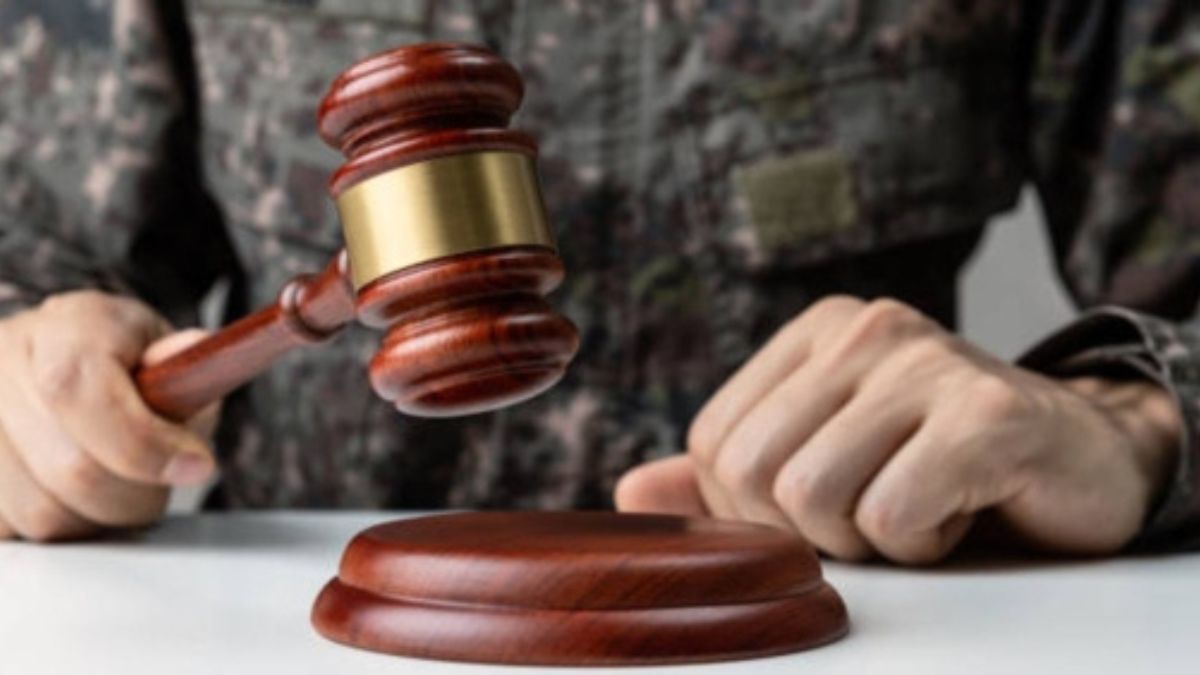LAW
Unpacking the Trulife Distribution Lawsuit: Key Insights and Implications

The Trulife Distribution lawsuit has recently taken center stage in the healthcare world, raising crucial questions about ethics, accountability, and industry practices. As the case unfolds, it’s capturing attention not just from legal experts but also from patients and consumers who rely on medical products for their well-being. What exactly led to this heated legal battle? Who are the key players involved? And how might this impact everyday lives?
In a sector where trust is paramount, understanding the implications of such lawsuits becomes essential. With each new development, we gain insight into how companies operate and what responsibilities they hold toward their customers. Let’s delve deeper into this complex matter and unpack what it means for everyone involved.
What is the Trulife Distribution Lawsuit?
The Trulife Distribution lawsuit centers around allegations of unfair practices and compliance issues within the medical supply distribution sector. It highlights concerns about product pricing, distribution methods, and potential misrepresentation.
At its core, the suit raises significant questions about how healthcare companies operate in a highly regulated environment. Such legal challenges often revolve around ethical responsibilities toward both providers and consumers.
This case has garnered widespread attention due to Trulife’s established reputation in supplying critical medical products. The implications are profound not only for the company but also for others in the industry who may face similar scrutiny.
As details emerge, stakeholders from various sectors are keenly observing how this lawsuit unfolds and what precedents it might set for future business conduct in healthcare distribution.
The Background and Timeline of Events
The Trulife Distribution lawsuit has roots that stretch back several years. Initially, concerns emerged regarding the company’s distribution practices and compliance with regulatory standards in the healthcare sector.
In 2021, allegations surfaced about potential misconduct related to product pricing and transparency. Whistleblowers came forward, revealing discrepancies that caught the attention of federal regulators.
By mid-2022, investigations were underway. Key documents were reviewed, and testimonies gathered from various stakeholders within the industry. This period marked a turning point as more details began to unfold publicly.
As news spread, both consumers and investors became increasingly concerned about the implications for Trulife’s operations. The timeline escalated quickly when lawsuits from affected parties followed soon after.
These developments set off a chain reaction of litigation that continues to capture interest across multiple sectors today.
Key Players Involved in the Lawsuit
The Trulife distribution lawsuit features several key players whose roles are pivotal to the case’s developments. At the forefront is Trulife itself, a prominent manufacturer in the healthcare sector known for its medical products.
Plaintiffs include distributors and retailers who claim that Trulife engaged in unfair business practices. Their allegations raise concerns about market competition and ethical standards within the industry.
Legal representatives on both sides bring distinct strategies to the courtroom. The plaintiffs aim to highlight alleged discrepancies in distribution agreements, while Trulife’s counsel defends its practices as compliant with industry norms.
Regulatory bodies also play a critical role, monitoring how this lawsuit unfolds and ensuring compliance with existing laws. Their involvement could influence future regulations affecting not just Trulife but potentially others in the healthcare landscape as well.
Implications for the Healthcare Industry
The Trulife distribution lawsuit has sparked significant conversation within the healthcare sector. A ripple effect is expected as stakeholders reassess their own practices and policies concerning distribution rights.
With allegations surrounding fair competition, companies may need to tighten compliance protocols. This scrutiny could drive a shift towards transparency in supply chains.
Healthcare providers might also reconsider partnerships with distributors. Trust is paramount, and any hint of impropriety can jeopardize relationships built over years.
Furthermore, regulatory bodies are likely to take a closer look at existing laws governing medical product distribution. Stricter regulations could emerge as governments aim to protect patient interests amid rising concerns about corporate malpractice.
This case serves as a reminder that ethical practices must remain at the forefront of industry operations. Balancing profit with integrity will be essential for long-term sustainability in healthcare.
Impact on Patients and Consumers
The Trulife distribution lawsuit has significant ramifications for patients and consumers alike. As the case unfolds, concerns about product availability and pricing are top of mind. A disruption in supply chains could lead to shortages of essential medical products.
Patients often depend on these products for their daily needs, particularly those with chronic conditions. Uncertainty surrounding the lawsuit may cause anxiety among consumers reliant on specific items from Trulife.
Moreover, this situation raises questions about accountability within the healthcare sector. Consumers might start to scrutinize brands more closely, questioning quality control measures and ethical practices.
As legal battles continue, patients may find themselves navigating a complex landscape where trust in suppliers becomes increasingly critical. The outcome will likely influence purchasing decisions long after the final verdict is announced.
Potential Outcomes and Settlements
The potential outcomes of the Trulife Distribution lawsuit remain uncertain, but they could have far-reaching effects. If the court rules in favor of one party, it may lead to substantial financial penalties or settlements.
Monetary compensation might be awarded to affected parties, which can influence how similar cases are handled in the future. Settlements could encourage other companies to adopt more stringent compliance measures.
Alternatively, a ruling against Trulife could reshape its operational strategies and policies. This would likely prompt a reevaluation of their distribution practices across the industry.
If negotiations take place outside of court, both sides may agree on terms that address grievances while avoiding lengthy litigation. Such agreements often include commitments to enhanced transparency and accountability moving forward.
Each scenario holds implications that extend beyond just this case—impacting standards within healthcare distribution as a whole.
Lessons Learned and Moving Forward
The Trulife Distribution lawsuit has revealed significant lessons for the healthcare sector. Transparency in business practices is crucial. Companies must prioritize open communication with stakeholders to foster trust.
Moreover, compliance cannot be taken lightly. Regulatory frameworks are there for a reason and should guide all operations within the industry. Ignoring these can lead to dire consequences.
Healthcare entities now face increased pressure to conduct regular audits and assessments of their distribution practices. This proactive approach could mitigate risks before they escalate into legal battles.
Stakeholder engagement plays a pivotal role too. Listening to patients and providers creates an environment where concerns are addressed early on, reducing potential disputes.
As the industry adapts, innovation becomes essential. Embracing new technologies can streamline operations while ensuring adherence to regulations, ultimately benefiting everyone involved in healthcare delivery.
Conclusion
The Trulife Distribution lawsuit has highlighted significant concerns within the healthcare industry. It serves as a stark reminder of the complexities involved in distribution practices and regulatory compliance. The implications extend beyond just the companies involved; they affect patients, consumers, and the overall integrity of healthcare services.
As we watch this case unfold, it is crucial for stakeholders to remain vigilant. The impact on patients can be profound if issues related to product availability or quality arise from such disputes. Consumers deserve transparency and assurance that they are receiving safe and effective products.
The potential outcomes of this lawsuit could set precedents for how similar cases are handled in the future. Settlements may lead to changes in policies or even reforms that prioritize patient welfare over profit margins.
Lessons learned from this situation will resonate throughout the industry. Companies will need to reassess their practices, ensuring compliance with regulations while maintaining ethical standards.
With all eyes on this unfolding narrative, one thing remains clear: understanding these dynamics can help foster a healthier relationship between distributors, manufacturers, healthcare providers, and ultimately—patients themselves.
LAW
Can I Move Out Of State With My Child After Divorce?

After a divorce, the thought of moving to another state with your child might bring a mix of hope and anxiety. You want what’s best for your child, but the legal waters can feel murky. Making such a move without following proper procedures can lead to complicated legal challenges. Before packing your bags, it’s important to understand the legal steps required. Each state has specific rules about relocating with a child after a divorce. Courts focus on what serves the child best. They examine factors like the child’s relationship with both parents, educational needs, and emotional well-being. You must present a compelling case for the move. Consulting with a Mount Pleasant Divorce Attorney can offer guidance tailored to your situation. They can help you understand your rights and craft a plan that aligns with legal standards. This ensures you fulfill your child’s needs while respecting legal requirements.
Understanding Legal Considerations
Before making any plans, it is crucial to understand the legal framework that governs such moves. Laws differ from state to state, but generally, they share a focus on the child’s best interests. Most jurisdictions require the custodial parent to notify or seek permission from the non-custodial parent or the court before relocating.
For a successful petition, you need to clearly state the reasons for the move. Common reasons include better job opportunities, proximity to extended family, or improved educational settings for the child. However, the court may require more than just a verbal explanation. You should prepare evidence to support your reasons.
Factors Considered by Courts
When deciding on relocation, courts review several factors:
- The child’s bond with each parent
- Educational opportunities in the new location
- The potential impact on the child’s emotional well-being
These factors help the court decide if the move benefits the child overall. The court’s decision will balance the child’s emotional health, educational needs, and relationships with both parents.
Creating a Viable Plan
To strengthen your case, create a detailed plan that addresses the following:
- Proposed visitation schedule for the non-custodial parent
- Transportation arrangements for the child
- Communication methods to maintain the parent-child bond
Presenting a well-thought-out plan shows the court your commitment to maintaining the child’s relationship with the other parent. It demonstrates responsibility and foresight.
State-Specific Laws
Each state has its own set of rules governing child relocation. Below is a comparison table highlighting the differences:
| State | Notification Required | Approval Needed |
| California | Yes | Court approval if contested |
| Texas | Yes, typically 60 days prior | Yes, if contested |
| New York | Yes | Yes, if contested |
Always check the specific laws in your state before proceeding. You can find more information on state-by-state laws by visiting the National Conference of State Legislatures.
Seeking Professional Guidance
Legal processes can be overwhelming. Enlisting the help of a qualified attorney can ease the stress. They can offer insights into your state’s specific procedures and help you prepare your case. A legal advisor can also guide you on what evidence to gather and how to present your case to make a compelling argument.
For further reading on child custody and relocation laws, you can consult the American Bar Association. They provide comprehensive resources on family law, including child relocation cases.
Conclusion
Relocating with a child after divorce involves more than just moving boxes. It requires a careful balance of legal responsibilities and the child’s well-being. Understanding the legal steps and preparing a comprehensive plan can pave the way for a smoother transition. Remember, the goal is to ensure the best possible outcome for your child, while respecting all legal obligations. Focusing on these elements will help you make informed decisions, providing peace and stability for both you and your child.
LAW
How Much Does A Divorce Cost

Navigating a divorce can be emotionally challenging. Understanding the costs involved eases some of that burden. Divorce expenses vary widely. Legal fees play a big role, but many factors affect the total cost. From filing fees to mediation expenses, knowing what to expect helps you prepare. Wood Cross Divorce Attorneys can provide guidance on these expenses. It’s crucial to consider all potential costs upfront. Legal representation, court fees, and possibly child custody evaluations contribute to the total. Familiarize yourself with these elements to manage expectations. When prepared, you can focus on the significant life changes ahead. Remember, divorce is a process with many layers. Accurate knowledge reduces stress and financial surprises. By shedding light on these costs, you make informed decisions. This understanding leads to better financial planning during a difficult time. Facing the unknown is always daunting. Take control with clear information about divorce expenses.
Basic Divorce Costs
The basic costs of divorce include filing fees and court fees. These are necessary expenses for anyone seeking a divorce. Filing fees differ by state. Expect to pay anywhere from $100 to $400. Some states also charge additional fees for processing paperwork. Court fees can add another layer of expense if your case goes to trial.
Consider using mediation. Mediation fees range from $100 to $300 per hour. While this might seem costly, mediation often saves money in the long run by avoiding long court battles. Mediation also allows for more amicable solutions.
Legal Representation
Legal fees are often the most significant expense. Hiring a lawyer provides expertise and can ease the divorce process. Most lawyers charge by the hour, with rates varying between $150 and $500. The complexity of your case and the experience of your lawyer influence the total cost.
Some lawyers offer flat fees for uncontested divorces. This can be a more affordable option if you and your spouse agree on major issues. For more guidance, consult the United States Courts for an overview of fee schedules.
Additional Costs
Beyond basic and legal fees, other expenses may arise. Child custody evaluations can cost several thousand dollars. These evaluations include interviews, home visits, and psychological tests. They help determine the best interests of the child, but they add to the financial burden.
Property appraisals and financial analyses are sometimes needed. These services assess the value of shared assets and liabilities. Costs vary depending on the complexity and number of assets involved.
Estimated Divorce Costs Table
| Expense | Estimated Cost |
| Filing Fees | $100 – $400 |
| Mediation | $100 – $300 per hour |
| Legal Fees | $150 – $500 per hour |
| Child Custody Evaluation | $1,000 – $5,000 |
| Property Appraisal | $300 – $1,500 |
| Financial Analysis | $1,000 – $3,000 |
Cost-Saving Tips
To manage divorce costs, consider the following tips. First, opt for uncontested divorce if possible. This reduces both time and legal fees. Next, use mediation to agree on various issues. This method is often quicker and more amicable.
Limit communication with your lawyer to essential matters. Every phone call or email could add to your bill. Also, gather and organize your financial documents. This preparation saves time and reduces legal fees.
Conclusion
Understanding the costs involved in a divorce helps you plan and reduces stress. Legal fees, filing costs, and additional evaluations contribute to the total expense. Explore options like mediation and uncontested divorce to keep costs manageable. For more information, visit Purdue University’s guide on divorce costs. Remember, being well-informed leads to better financial planning during this challenging time.
LAW
What To Do If You’re Accused Of Espionage Or Treason As A Service Member

Facing accusations of espionage or treason can be overwhelming. You might feel isolated and unsure of your next steps. But remember, you’re not alone. Here’s what to do if you’re accused of espionage or treason as a service member. First, stay calm and gather your thoughts. Panic will not help you. Next, immediately seek military legal help. It’s crucial to have a knowledgeable guide through this process. You need someone who understands the military justice system. Communicate honestly with your legal advisor. They’re your advocate, there to help you. Also, refrain from discussing details with others. This protects you from misunderstandings or further allegations. Maintain your routine as much as possible to stay grounded. Pay attention to any legal paperwork you receive and comply with deadlines. Remember that there is a way through this situation. Reach out for help and stay focused on navigating this challenge.
Understanding the Accusation
It’s important to understand the nature of the charges against you. Espionage involves sharing or attempting to share information with foreign entities. Treason, a grave accusation, involves actions against your own nation. Both carry severe consequences. Knowing these differences helps you communicate effectively with your legal team.
Legal Representation
Your choice of legal help is vital. A military attorney familiar with the Uniform Code of Military Justice (UCMJ) will provide the best assistance. They will navigate the complex legal proceedings and ensure your rights are safeguarded. Be open and honest with them to create a strong defense.
Maintaining Composure
During investigations, maintaining composure is essential. Avoid confrontations and focus on cooperating with legal processes. This shows your commitment to resolving the accusations and upholding integrity.
Sample Consequences of Accusations
| Accusation | Potential Consequences |
| Espionage | Dishonorable discharge, imprisonment |
| Treason | Life imprisonment, fines |
Support Systems
Leverage the support available to you. Aside from legal help, consider reaching out to family, trusted friends, or support groups. The backing of loved ones can provide comfort and strength during difficult times.
Focus on Evidence
Gather any evidence that supports your case. This can include communication records, witness statements, or any documentation disproving the allegations. Share these with your attorney to build a robust defense strategy.
Be Aware of Rights
Understand your rights as a service member. You have the right to remain silent, the right to legal representation, and the right to a fair trial. Use these rights wisely to protect yourself during legal proceedings.
Conclusion
Accusations of espionage or treason are serious and can have long-lasting implications. However, with the right approach and support, you can navigate this challenging period. Remember, staying calm and focused is crucial. Seek military legal help as a priority and maintain honest communication with your legal team. Protect your rights and work towards presenting a strong defense. Rely on your support network to provide emotional strength. With diligent preparation and guidance, you can overcome these accusations and emerge with your integrity intact.
-

 FASHION11 months ago
FASHION11 months agoElegant Winter Party Style: Trendy Long-Sleeve Dresses and Essential Hair Care Tips
-

 HOME11 months ago
HOME11 months agoThe Impact of thejavasea.me Leaks AIO-TLP Users: A Comprehensive Guide
-

 BUSINESS10 months ago
BUSINESS10 months agoHOW TO SHOP GOODWILL OUTLET STORE
-

 SKINCARE&BEAUTY5 months ago
SKINCARE&BEAUTY5 months agoCeylan Eye Cream Reviews: Real Results from Real Users
-

 HOME5 months ago
HOME5 months agoTributePrintedPics Review: A Deep Dive into Quality, Design, and Customer Experience
-

 CULTURE5 months ago
CULTURE5 months agoUncuymaza Unveiled: The Cultural Significance Behind the Craft
-

 LIFESTYLE4 months ago
LIFESTYLE4 months agoDiscovering Luuxly.com: Your Ultimate Guide to Luxury Lifestyle
-

 TECHNOLOGY5 months ago
TECHNOLOGY5 months agoztec100.com: Your Ultimate Guide to Cutting-Edge Tech Solutions
